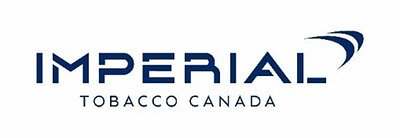
Quebec’s Vaping Crackdown: A Flavour Ban Backfires, Fueling Illegal Market
Two years after banning flavoured vapes, Quebec sees 80% of products sold illegally. Is the crackdown failing, and is Big Tobacco now an unlikely ally in the fight against a growing black market?
Quebec’s Vaping Crackdown: A Flavour Ban Backfires, Fueling Illegal Market
Montreal, QC – Two years after implementing a province-wide ban on flavoured vaping products, Quebec is facing an unexpected consequence: an explosion in the illegal market. Now accounting for a staggering 80% of all vaping products sold, the black market is raising serious public health and safety concerns, prompting a surprising call for stricter enforcement – from Imperial Tobacco Canada, a company traditionally at odds with such regulations.
The initial goal of the flavour ban, enacted in June 2023, was to curb youth vaping rates and protect public health. However, according to a recent study from the Institut national de santé publique du Québec (INSPQ), the policy has largely backfired. The study confirms that illegal products have surged from 67% of the market share in September 2024 to 80% as of June 2025, indicating a clear and accelerating trend.
“The intention behind the ban was laudable,” says a public health official familiar with the INSPQ study, requesting anonymity. “But simply removing flavours without addressing the underlying demand and investing in enforcement created a vacuum that illegal operators quickly filled.”
An Unlikely Advocate: Big Tobacco Calls for Enforcement
In a press release issued last week, Imperial Tobacco Canada, a subsidiary of British American Tobacco, argued that the flavour ban has demonstrably failed and is now undermining public health goals. The company is now urging the Quebec government to prioritize rigorous enforcement of existing regulations, a position that many find remarkable given Imperial Tobacco’s historical opposition to stringent vaping laws.
“It’s certainly a shift in messaging,” acknowledges a policy analyst specializing in tobacco and nicotine regulations. “For years, Imperial Tobacco actively fought against flavour bans, arguing they would stifle innovation and harm consumers. Now, they’re advocating for enforcement, which raises questions about their motivations.”
According to company filings and lobbying records, Imperial Tobacco Canada has historically argued for a more nuanced approach to vaping regulations, advocating for education and responsible marketing alongside enforcement. Their recent call for stricter enforcement appears to be a tactical shift, potentially aimed at regaining market share within a regulated environment.
“They’re likely seeing the illegal market as a threat to their own business,” explains the policy analyst. “If they can help to crack down on illegal operators, it creates an opportunity for legal, regulated products to gain a foothold.”
Beyond Flavour: The Root of the Problem
While the flavour ban is at the centre of the debate, experts argue that it’s only one piece of a complex puzzle. The surge in illegal vaping products is also fueled by factors such as high taxes, limited access to legal alternatives, and a lack of public awareness about the risks of using unregulated products.
“Simply banning flavours doesn’t address the underlying demand,” says a representative from the Quebec Coalition for Tobacco Control. “Many vapers are willing to seek out illegal products if they can’t get the flavours they want. We need a comprehensive approach that includes education, prevention, and enforcement.”
The INSPQ study also highlights the growing health risks associated with illegal vaping products. Researchers have documented cases of severe respiratory problems and other health complications linked to the use of unregulated e-liquids, which often contain harmful contaminants and undisclosed ingredients.
A Provincial Problem, a National Trend?
Quebec’s experience is not unique. Other Canadian provinces, such as British Columbia and Ontario, have implemented similar flavour bans, but the surge in illegal vaping products has been less dramatic. Experts attribute this to stronger enforcement mechanisms and more robust public health initiatives.
“Provinces that have prioritized enforcement and invested in public education have been more successful in mitigating the rise of the illegal market,” says the policy analyst. “It’s about creating a level playing field for legal operators and deterring consumers from seeking out unregulated products.”
In the United States, several states have also implemented flavour bans, with varying degrees of success. The experience in Quebec serves as a cautionary tale, highlighting the unintended consequences of poorly implemented regulations.
Looking Ahead: A Path Forward?
The situation in Quebec demands a comprehensive and collaborative approach. Experts recommend a combination of measures, including:
- Strengthened Enforcement: Increased funding for law enforcement to crack down on illegal vaping operations.
- Public Education: Campaigns to raise awareness about the risks of using unregulated vaping products.
- Tax Reform: Reviewing vaping taxes to ensure they don’t incentivize the illegal market.
- Regulation of Nicotine Content: Establishing clear regulations for nicotine content in e-liquids.
- Support for Cessation: Providing resources and support for vapers who want to quit.
Ultimately, addressing the illegal vaping market requires a long-term commitment to public health and a willingness to adapt regulations based on evidence and experience. The current situation in Quebec demonstrates that simply banning flavours is not enough – a more nuanced and comprehensive approach is needed to protect public health and ensure a safe and regulated vaping market.
